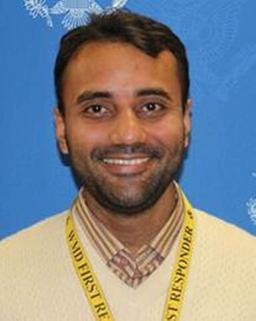Trudeau's Political Journey: A Legacy of Ambition, Controversy, and Shifting Alliances

Justin Pierre James Trudeau's political life began in the cradle. Born Christmas Day, 1971, to Margaret Sinclair and Pierre Elliott Trudeau, Canada's 15th prime minister, their eldest son grew up in the spotlight and an atmosphere of privilege. Now, he's out in the cold, abandoned by his closest allies and maligned by his opponents as Canada, too, joins the global anti-incumbent mood.
Justin Trudeau's tenure began with ambitious promises, including climate action, reconciliation with Indigenous peoples, electoral reform, and restoring Canada's global image. He implemented measures like the Canada Child Benefit, middle-class tax cuts, and legalized recreational cannabis. On the international front, he focused on multilateralism, free trade, and feminism, positioning himself similarly to Barack Obama.
Trudeau won elections in 2019 and 2021 with reduced mandates. Key initiatives included a national carbon tax, the renegotiation of NAFTA (USMCA), support for LGBTQ+ rights, legalized assisted dying, and stricter gun control. To secure support from the New Democratic Party, he introduced a national $10-a-day daycare plan and free dental care for certain groups and began work on a pharmacare program.
Trudeau's tenure has been marked by broken promises and ethical issues, including failing to implement electoral reform and manage deficits, which alienated various political bases. The SNC-Lavalin scandal, his luxury vacations, and blackface photos have further harmed his credibility. Indigenous leaders criticize his progress on reconciliation, and public frustration has risen due to inflation, housing costs, and healthcare issues. His immigration policies led to an influx of newcomers, straining housing availability. Internationally, relations with China worsened after the arrest of Huawei's Meng Wanzhou, and tensions with India escalated after Trudeau accused the Modi government of involvement in a terrorist assassination in Canada. A public inquiry also highlighted foreign interference in Canada's elections and Trudeau's inaction regarding critical information about his MPs.
I will digress from the main topic and focus on the Trudeau and India issues for a few minutes. The relationship between Canada and India, particularly regarding Prime Minister Justin Trudeau, has been noteworthy. It highlights Trudeau's initial optimism for trade expansion with India after a meeting with Prime Minister Modi and a motion by Ontario's Harinder Malhi labeling the 1984 anti-Sikh riots as "genocide." Trudeau's participation in a Khalsa Day celebration during this period was met with increasing support for pro-Khalistan radicals. A diplomatic rift emerged in June 2023 after the killing of Hardeep Singh Nijjar, a designated Khalistani terrorist, leading Trudeau to accuse Indian agents of involvement. Many Canadians see Trudeau's accusations against India as a political strategy to deflect from domestic challenges. Critics argue that his intentions were twofold: to attract Khalistani Sikh voters and to distract from internal issues, including potential dissent within his own Liberal Party caucus.
In striking contrast, Trudeau exhibited greater maturity nearly a decade ago than his current self at 53. One can question whether he genuinely envisioned his role as the quintessential prime minister, ushering in an era of governance where party affiliations would lose significance. This idealistic rhetoric indicates a certain naivete, which becomes challenging to engage with when juxtaposed with the substantial political missteps and failures that have characterized his tenure.
According to Canadian fixed election laws, Canadians are supposed to head to the polls by the third Monday in October every fourth calendar year. Ergo, they are anticipating an election in 2025. As he announced his stepping down as leader of the Liberal Party of Canada, he triggered a leadership race and prorogued Parliament until its conclusion, when a new leader would automatically become Prime Minister.
The current political discourse focuses on one individual, reflecting a hallmark of narcissistic behavior—namely, the belief that one is the center of attention, with others fixated on their actions and statements. Given the circumstances, only a political figure with narcissistic tendencies would remain in this position. Over the past ten days, Prime Minister Trudeau has experienced a significant erosion of support from key regional caucuses. Consequently, the Liberal Party caucus is actively deliberating potential strategies for navigating this precarious situation.
The prevailing sentiment in Canada suggests that the current political spectacle must cease. The government must redirect its focus toward pressing national priorities. Approximately 10% of Canadians rely on food banks, indicating a significant issue surrounding food insecurity. The rates of unemployment and homelessness are alarming and poised to worsen. With President Donald Trump resuming office on January 20, he has committed to imposing a 25% tariff on all Canadian exports, which could further destabilize the economy. His stated intention to deport 10 million undocumented immigrants may trigger an influx of refugees at our borders. There is a lack of strategic planning from the federal government to address these impending challenges effectively. An electoral process is needed to provide substantive choices among diverse political ideologies rather than merely a referendum on the current prime minister. Justin Trudeau has rightly stepped down, the Liberal Party requires new leadership, and the electorate must be allowed to voice their preferences. In doing so, society can return to a more stable and predictable governance framework. It must be acknowledged that Trudeau has shown the grace and acumen that Bob Rae had shown in 2012-13, when the veteran politician, and currently Canada’s UNPR, stepped down to make space for Justin Trudeau to stand at the helm and acquired the great victory the Liberals so did back then.
19% of Canadians believe the country is on the right track. 22% approve of the job the government is doing. 11% of people—including only 27% of 2021 Liberal Voters—think the government deserves to be re-elected. The Liberal vote share is down to 20%, a 25% deficit. All of these findings are from the December 2024 opinion polls. It's consistent with a deteriorating government.
Simon Mohsin: Political and International Affairs Analyst.


Leave A Comment
You need login first to leave a comment